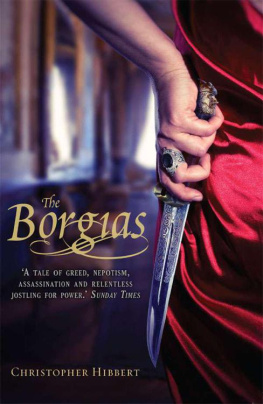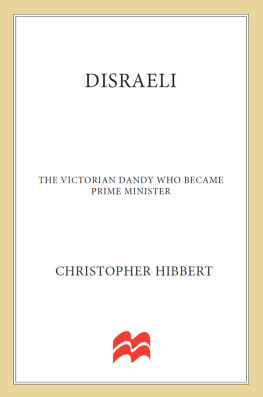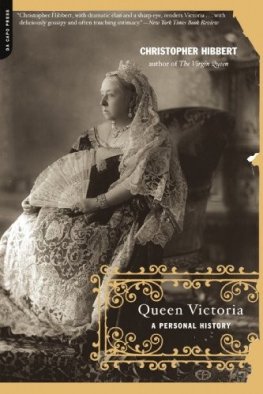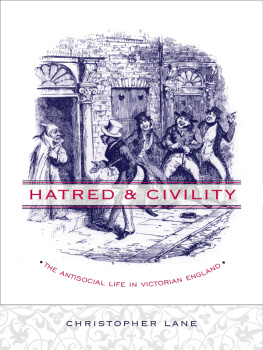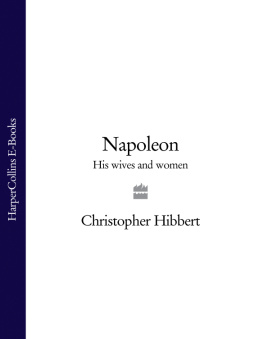Christopher Hibbert - Life in Victorian England
Here you can read online Christopher Hibbert - Life in Victorian England full text of the book (entire story) in english for free. Download pdf and epub, get meaning, cover and reviews about this ebook. City: New York, year: 2018, publisher: New Word City, genre: History. Description of the work, (preface) as well as reviews are available. Best literature library LitArk.com created for fans of good reading and offers a wide selection of genres:
Romance novel
Science fiction
Adventure
Detective
Science
History
Home and family
Prose
Art
Politics
Computer
Non-fiction
Religion
Business
Children
Humor
Choose a favorite category and find really read worthwhile books. Enjoy immersion in the world of imagination, feel the emotions of the characters or learn something new for yourself, make an fascinating discovery.

- Book:Life in Victorian England
- Author:
- Publisher:New Word City
- Genre:
- Year:2018
- City:New York
- Rating:3 / 5
- Favourites:Add to favourites
- Your mark:
- 60
- 1
- 2
- 3
- 4
- 5
Life in Victorian England: summary, description and annotation
We offer to read an annotation, description, summary or preface (depends on what the author of the book "Life in Victorian England" wrote himself). If you haven't found the necessary information about the book — write in the comments, we will try to find it.
Life in Victorian England — read online for free the complete book (whole text) full work
Below is the text of the book, divided by pages. System saving the place of the last page read, allows you to conveniently read the book "Life in Victorian England" online for free, without having to search again every time where you left off. Put a bookmark, and you can go to the page where you finished reading at any time.
Font size:
Interval:
Bookmark:


One summer day toward the end of the nineteenth century, a nervous eighteen-year-old American heiress, Consuelo Vanderbilt, was driven to Blenheim Palace in Oxfordshire. She was going to spend a long English weekend with her mother as a guest of the ninth Duke of Marlborough, whom it was intended that she should soon marry.
We entered the park through a stone arch, she later wrote. A porter in livery carrying a long wand surmounted by a silver knob from which hung a red cord and tassel stood at attention and the great house loomed in the distance. At the right of us and below lay an ornamental lake spanned by a monumental bridge. We turned into a fine avenue of elms and passed through another arch leading into a court.... A flight of shallow steps led up to the main entrance of the Palace. The doors opened onto an immense hall with a domed ceiling.
Miss Vanderbilt was led across the grandiose hall, past a painting of the Great Duke clothed in a Roman toga and driving a chariot, toward the Great Saloon, where there were further memorials to her hosts ancestor, this time frescoes painted by Laguerre. Drawing rooms stretched in vistas on either side of the Saloon, in which, beneath two impressive mantelpieces, a tea table had been set. After a while the duke appeared, an opinionated, disdainful young man with a small aristocratic face with a large nose and rather prominent blue eyes. His hands, which he used in a fastidious manner, were well shaped and he seemed inordinately proud of them. The evening was spent listening to the dukes organist in the Long Library, and the next morning His Grace took his guests on a drive through the outlying villages [of his estate], where old women and children curtsied and men touched their caps as we passed.
The Blenheim estate extended to nearly 24,000 acres, from which the duke derived an income of 37,000 a year (the equivalent of $180,042 at a time when the pound was worth $4.86). Enormous as this sum was when income tax was only a few pence on the pound, Marlborough was not a rich man compared with some other members of his class. The marquis of Butes estate brought him about 150,000 a year, the Duke of Northumberlands 176,000, the Duke of Devonshires 181,000, and the Duke of Buccleuchs 217,000. The Duke of Westminster enjoyed an annual income of 250,000 from his London property alone, and the Duke of Bedford, so Disraeli informed the queen, had an income absolutely exceeding 300,000. Nor was the Duke of Marlboroughs landed estate large in comparison with many others. There were over forty landowners who owned more than 100,000 acres. The Duke of Buccleuch had 460,000; and the Duke of Sutherland 1,358,000, an area larger than the counties of Bedfordshire, Berkshire, and Buckinghamshire put together.
The less rich of these landed aristocrats required constant infusions of money if they were to live in the style to which their upbringing had accustomed them, and several found the necessary money by marrying wealthy wives. Lord Rosebery chose a Rothschild; the eighth Duke of Marlborough, divorced by his first wife, chose as his second an immensely wealthy American widow, Mrs. Hammersley; the ninth duke, although in love at the time with someone else, decided that he could not find a more suitable consort than the great-granddaughter of Cornelius Vanderbilt.
Consuelo Vanderbilt herself was not much taken with the idea. And after a dispiriting honeymoon, she began her life as mistress of Blenheim Palace with trepidation. She arrived at Woodstock by special train, then walked on a red carpet from the station to a carriage, from which the horses had been unhitched so that the dukes employees could drag her to the palace to the acclamations of the assembled tenants. As she stood on the steps listening to the various speeches of welcome, weighed down by her heavy fur coat, her arms full of bouquets, her big hat blown about by the wind, the new duchess suddenly felt distraught. Nor did her early experiences of life in an aristocratic palace reconcile her to a daily existence with a fastidious, sarcastic husband to whom she felt increasingly antipathetic. That first day on which she entered Blenheim as his wife, her maid was waiting for her in her room; a tea gown of satin and lace was laid out, and she dressed for the ritual of dinner such as Marlborough, the chef and the butler had decreed it to be:
How I learned to dread and hate these dinners, how ominous and wearisome they loomed at the end of a long day. They were served with all the accustomed ceremony, but once a course had been passed the servants retired to the hall; the door was closed and only a ring of the bell placed before Marlborough summoned them. He had a way of piling food on his plate; the next move was to push the plate away, together with knives, forks, spoons and glasses - all this in considered gestures which took a long time; then he backed his chair away from the table, crossed one leg over the other and endlessly twisted the ring on his little finger.... After a quarter of an hour he would suddenly return to earth or perhaps I should say to food and begin to eat very slowly, usually complaining that the food was cold!... As a rule neither of us spoke a word. I took to knitting in desperation and the butler read detective stories in the hall.
The duchess found that large dinner parties at Blenheim were scarcely more endurable. In the first place, they entailed a great deal of preliminary worry, for the duke was highly critical of the slightest mismanagement. Indeed, the whole arrangement of a weekend house party was an extremely trying business. First there were the invitations to issue to twenty-five or thirty guests; then the discussions with the butler and the chef, who were not only jealous of each other but perpetually complaining of the misdemeanors of their underlings; then the inspections of the guest rooms with the housekeeper to insure that they contained all that would be required - hot- and cold-water jugs, soap and sponge bowls, towels and mats, and, in particular, bathtubs in front of the fires - for Blenheim, like most other noblemens houses, contained only one or two bathrooms. Most worrying of all were the arrangements for the procession of guests into the dining room and for their seating around the table, since the rules of precedence had to be rigidly followed. This the duchess discovered immediately after her first big dinner party when one earl crossly complained that his superiority over another had not been recognized as it should have been.
During the dinner, there was constant anxiety that the eight-course meal would not be completed within the hour that the duke stipulated as being a sufficient time in which to consume it, an undertaking rendered all the more difficult by the kitchen being a good 300 yards from the dining room and by there usually being at least one greedy guest, who, unable to choose between the dishes offered him, wanted to have a taste of everything available.
The amount of food laid upon the dinner table in such houses as Blenheim was prodigious. First there would be a choice of soups, clear or thick, hot or cold; then two kinds of fish, poached turbot, say, and salmon mayonnaise. Two removes - turkey and roast mutton, perhaps - would accompany several entrees, such as cutlets, vol-au-vent, fillets of leveret or sauted fillets of fowl, served before two roasts. There might come a sorbet and after that, in the shooting season, the game course - partridge, pheasant, duck, woodcock, and snipe. When there was no game, quail and ortolan were shipped over from the Continent. There would also be numerous entremets - lobster salad, maraschino jelly, truffles with champagne.
Font size:
Interval:
Bookmark:
Similar books «Life in Victorian England»
Look at similar books to Life in Victorian England. We have selected literature similar in name and meaning in the hope of providing readers with more options to find new, interesting, not yet read works.
Discussion, reviews of the book Life in Victorian England and just readers' own opinions. Leave your comments, write what you think about the work, its meaning or the main characters. Specify what exactly you liked and what you didn't like, and why you think so.


